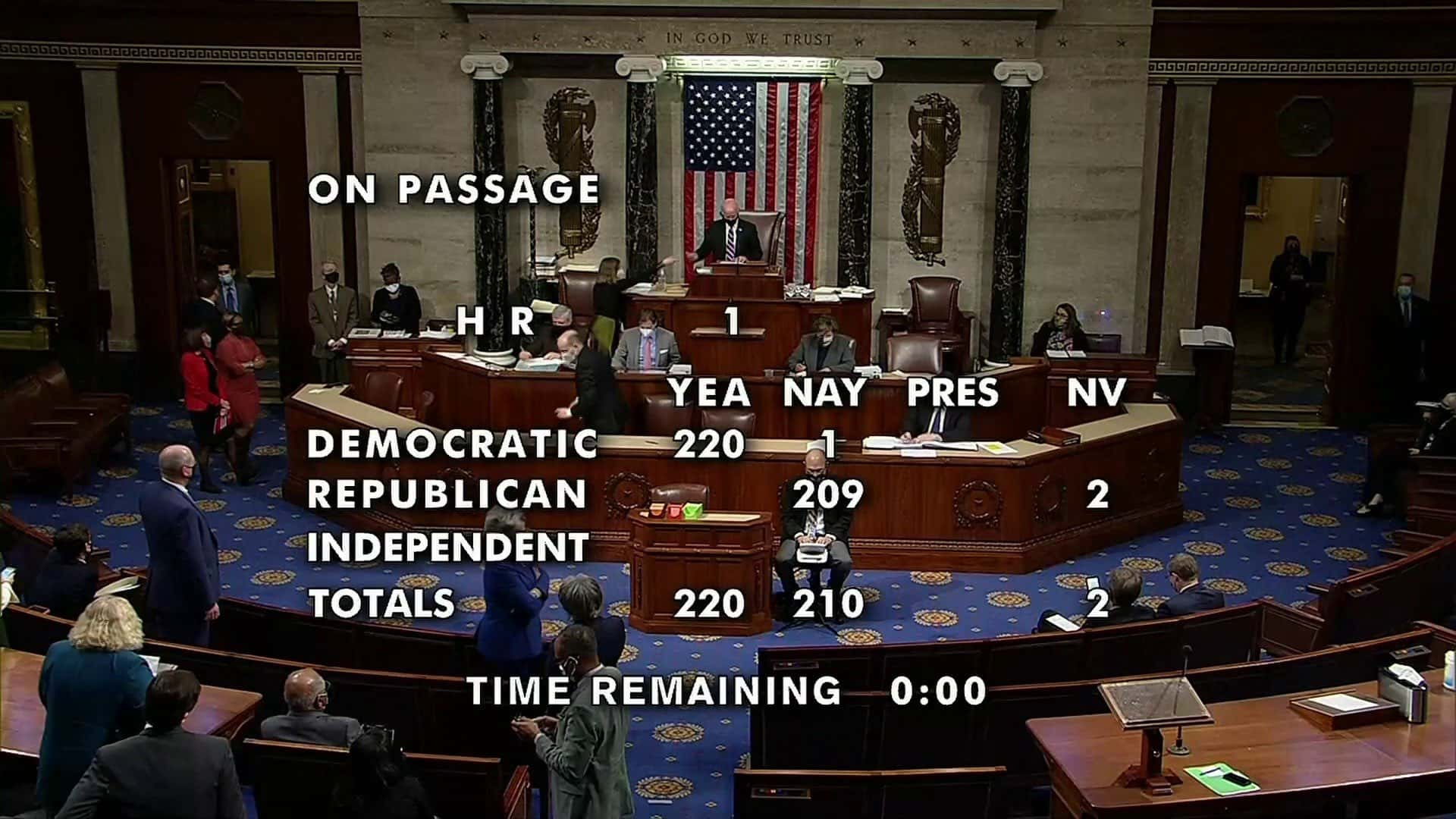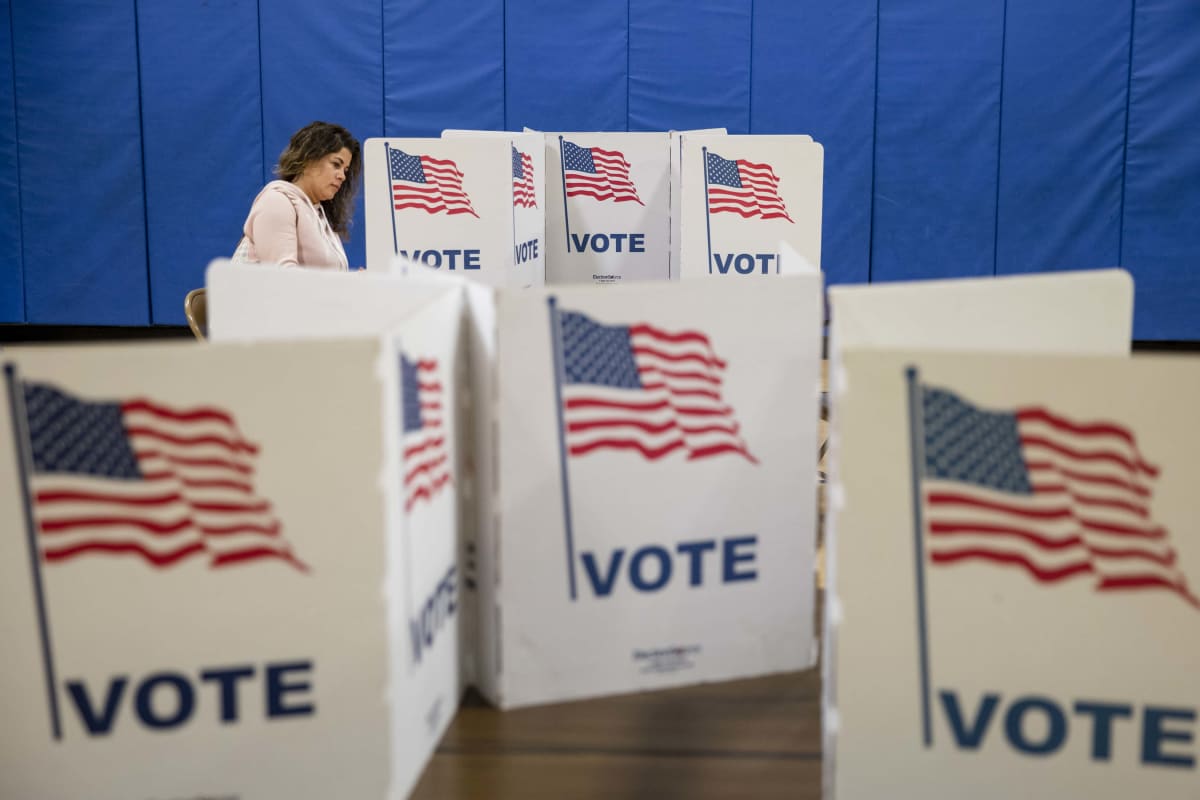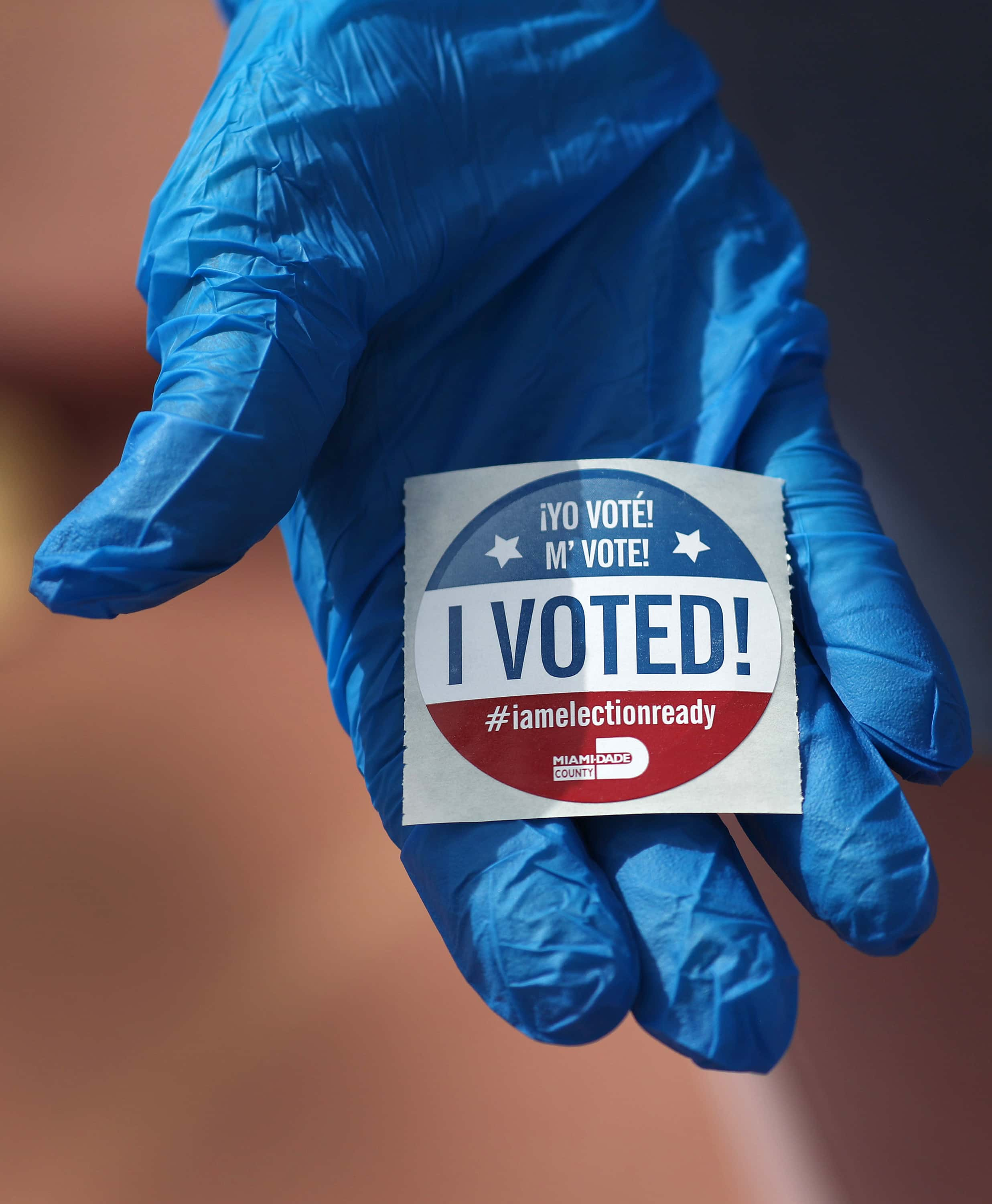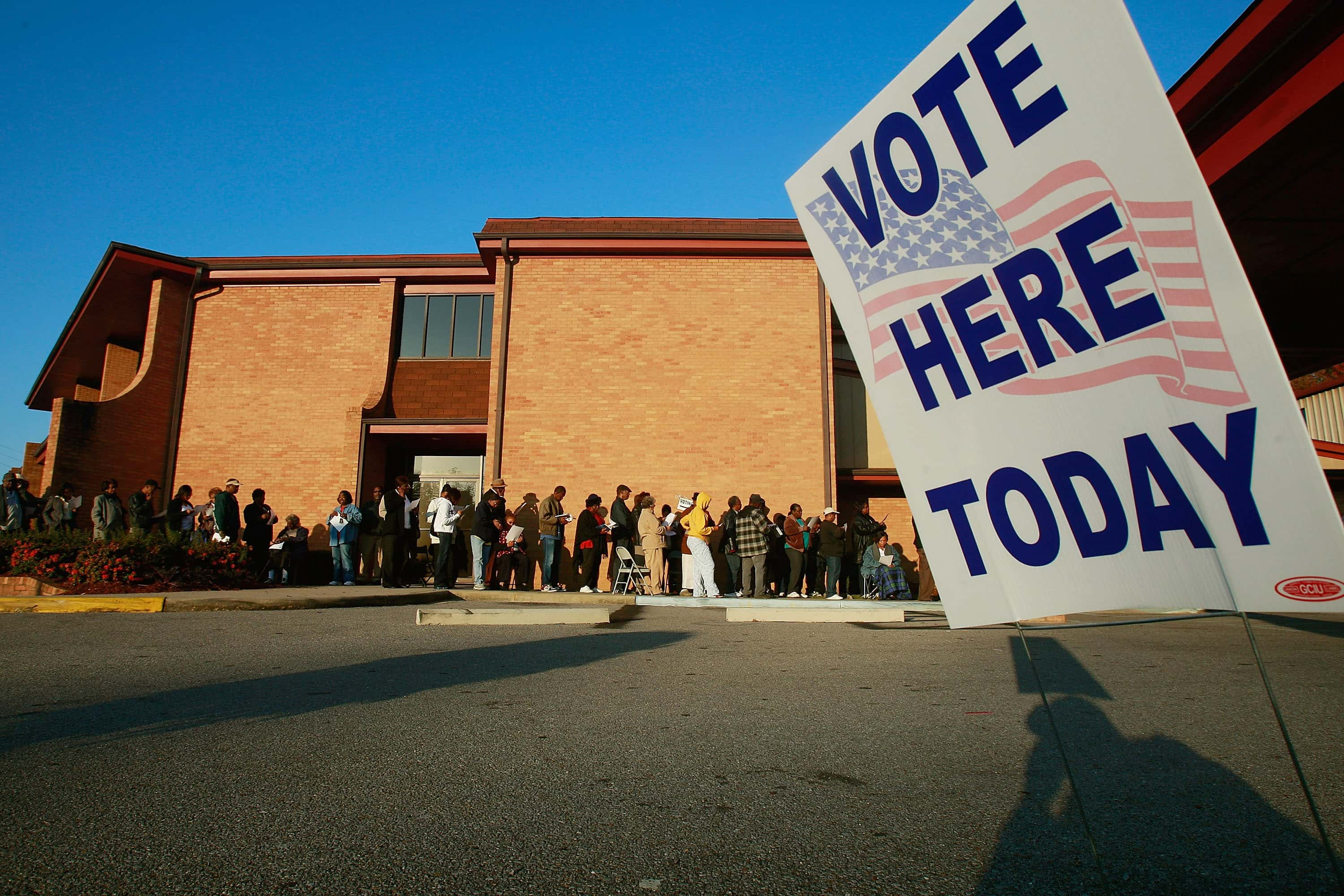Explained: What is voting rights bill HR 1? House Democrats vote 220-210 for reform partly drafted by John Lewis

The Democrat-controlled House of Representatives passed a 791-page voting rights bill on Wednesday, March 3. The bill, designated HR 1, brings about massive changes to elections and voting, which Republicans are strongly opposed to. The bill was adopted with a 220-210 vote along party lines and will now be passed to the Senate, where it is expected to fail as it will require 60 votes to pass.
If it becomes law, the bill marks the biggest federal enhancement to voting rights since the 1960s. It is seen as a response to Republican's increasing barriers to voting at the state level against what they see as rampant voter fraud. Fuelled by Trump's claims that the election was stolen, Republican-controlled states such as Iowa, Georgia, Arizona and Wisconsin have either passed or are actively debating restrictions to voting. HR 1 was introduced in January 2021 by Rep John Sarbanes as the "For the People Act of 2021". Some provisions of the act were drafted by John Lewis, the civil rights icon who passed away in 2020.
Native American rights group sues Montana ballot collection law for restricting voting rights

What is HR 1?
At nearly 800 pages, the bill covers a wide range of areas from voters' rights to campaign finance and gerrymandering. It cements many temporary expansions that the federal government introduced in 2020 as the Covid-19 pandemic limited voting options. As a result of the increased options, 2020 saw a record 158.4M ballots cast, which according to Pew is 7 percentage points higher than in 2016.
The bill can be broken down into 3 major areas. Here's a look at the key points you need to know.
Voter Rights
- There will be a new national automatic voter registration system that asks people to opt out, instead of in to vote. It will be the duty of "the chief state election official of each state" to ensure that all eligible citizens are registered to vote in federal elections.
- States will have to ensure that voters can access voting services online, to register, fill and submit details. States will have to provide election information via email. They will also be barred from collecting more than the last 4 digits of an individual's social security number.
- Restores voting rights to those convicted of felonies and have completed their sentence. Felons who are currently serving sentences are barred from having the right to vote.
- Limits purging of voter rolls by requiring states to verify with individuals. It also makes it mandatory for states to get in touch with individuals, and notify the public when names are removed from voter rolls.
- Opens a 15-day early voting period for all federal elections and requires states to prepay postage on return envelopes for mail-in voting.
- Redistricting is now banned mid-decade, and can only be done by an independent state commission. There will also be a three-judge court to oversee redistricting.

Campaign Finance
- All Congressional and presidential candidates will receive a voluntary 6-1 match for every dollar a candidate raises from small donations (capped at $200). The money will come from a 2.75 per cent fee on criminal and civil fines, fees, penalties or settlements with banks and corporations that commit corporate malfeasance.
- Supports a constitutional amendment to end Citizens United, a Supreme Court decision restricting independent expenditures for political communications. The decision is widely believed to be responsible for 'Super PACs' that can accept unlimited contributions.
- Passes the DISCLOSE Act that will require Super PACs and political organizations to disclose details of their donors to the public.
- Passes the Honest Ads Act that will require social media platforms to disclose the source of money for political ads and how much money was spent.
- Restructuring the Federal Election Commission (FEC) to have five members instead of the existing six.
- Requires heads of non-campaign organizations funding political advertisements to follow the 'Stand By You Ad Act' and affirm that they authorize the message in all political advertisements.

Ethics
- All candidates for president and vice president must disclose 10 years of tax returns to the FEC within 15 days of being announced as a candidate for the general election. These returns would then be made publicly available. If a candidate fails to do so, the FEC can obtain the records from the Secretary of the Treasury.
- Members of Congress will have to reimburse the Treasury for money paid as settlements and awards.
- Requires the Attorney General to establish a unit of the National Security Division of the Department of Justice to enforce the Foreign Agents Registration Act, requiring elected officials to disclose activities with foreign nationals.
- Expands the scope of individuals and activities that will be subject to the Lobbying Disclosure Act. The act requires individuals to disclose lobbying activities targeting the federal government.
- Forces officers or presidential appointees to recuse themselves from matters in which the president or the spouse of the president has an interest.
- Passes the Executive Branch Conflict of Interests Act that limits the revolving door between private industry and federal government.
- Require the President and Vice President to disinvest from all financial interests that pose a conflict of interest within 30 days of assuming office. This also covers the spouse and dependent children of the president and VP.

Does it matter?
HR 1 is an important bill as it helps expand voting rights and cut down on corruption in politics. According to Data for Progress, the bill is supported by roughly 67% of Americans, including 56% of registered Republicans. The bill matters, as Republicans in recent years have attempted to roll back access to the ballot. As Rep Sarbanes noted, "You can win on the basis of your ideas and the programs you put forward, which is what we choose to do. Or you can try to win by suppressing the vote, drawing unfair districts across the country and using big money to spread disinformation."
Shifting demographics have made it increasingly hard for Republicans to hold control, as indicated by the loss of two Senate seats in Georgia. That's why the party has introduced more than 250 bills in 43 states, limiting access. These bills target minorities, who often tend to vote for the Democrats. Republicans have argued that these measures don't limit voter access, but fraud instead. Notably, the bill only covers federal elections. It is still possible for Republicans to roll back voter protections in state elections. Seeing how the GOP controls 30 state legislatures, this would give them an edge to maintain control at the state level.
Now that the bill has passed the House, it will be sent to the Senate. Democrats will need 10 Republicans to break ranks and vote for the bill in order for it to be passed, which seems unlikely. It gives the Democrats more ammunition to argue against the filibuster, which has become a major political flashpoint. More conservative Democrats like Senator Joe Manchin have argued for the filibuster, and without his support, it is unlikely that the Democrats will be able to pass filibuster reform either.
'Curious why anyone should be OUTRAGED'
The internet was divided over the bill, with Democrats pushing for it to be passed while Conservatives argued against it. Some of the more controversial parts of the bill, like giving felons the right to vote, have also become major flashpoints. One user tweeted, "There's also a provision that I didn't mention, that requires states to restore voting rights to convicted felons who have served their prison terms. I have come to support this especially as bias in felony indictments and convictions has come to light."
Responding to a tweet about how the bill was unfair, another user tweeted "If y'all had better ideas, you wouldn't have to gerrymander and suppress voters to get into office. HR1 is VOTING RIGHTS FOR THE PEOPLE. Too bad the people don't like you." One commented, "If the original voting rights act wasn't law already, Republican politicians in 2021 would be unanimously against it." A user asked Congressman Steve Scalise, "Please explain why reducing friction for the most essential civil right within a free, self-governed society is outrageous. I’m not being facetious, I’m honestly curious why anyone “should be OUTRAGED” about national standards for mail-in voting and voter registration."
There's also a provision that I didn't mention, that requires states to restore voting rights to convicted felons who have served their prison terms. I have come to support this especially as bias in felony indictments and convictions has come to light.
— Dave Needs To Hit The Links This Year ⛳🥔🌐 (@desertdave2012) March 4, 2021
If y'all had better ideas, you wouldn't have to gerrymander and suppress voters to get into office.
— RACISM IS ARROGANT (@Dangerangel) March 4, 2021
HR1 is VOTING RIGHTS FOR THE PEOPLE.
Too bad the people don't like you.
If the original voting rights act wasn't law already, Republican politicians in 2021 would be unanimously against it.
— Ben Shoemaker (@b3nshoe) March 4, 2021
Please explain why reducing friction for the most essential civil right within a free, self-governed society is outrageous.
— ChirpyTopiary (@ChirpyTopiary) March 4, 2021
I’m not being facetious, I’m honestly curious why anyone “should be OUTRAGED” about national standards for mail-in voting and voter registration.










